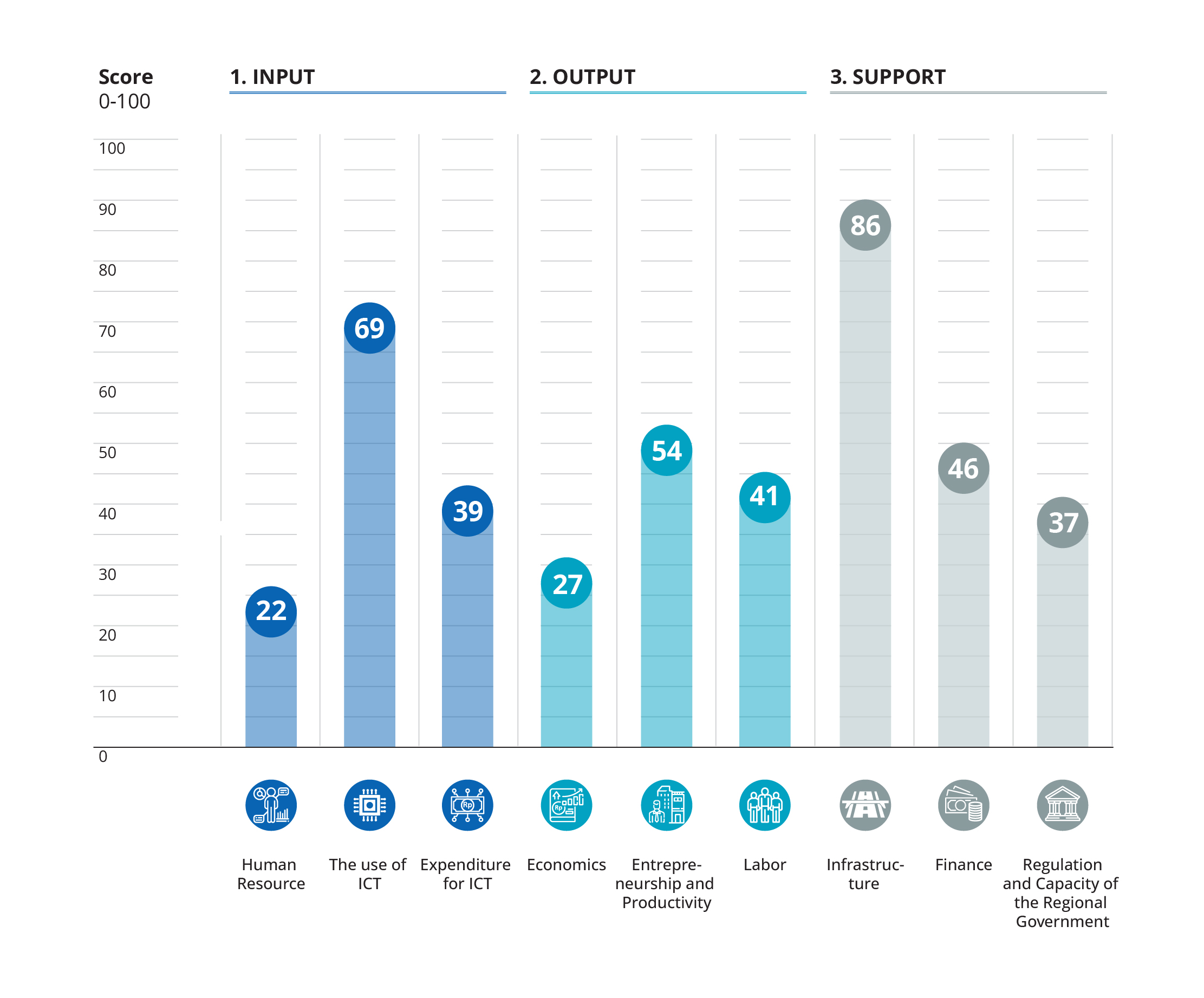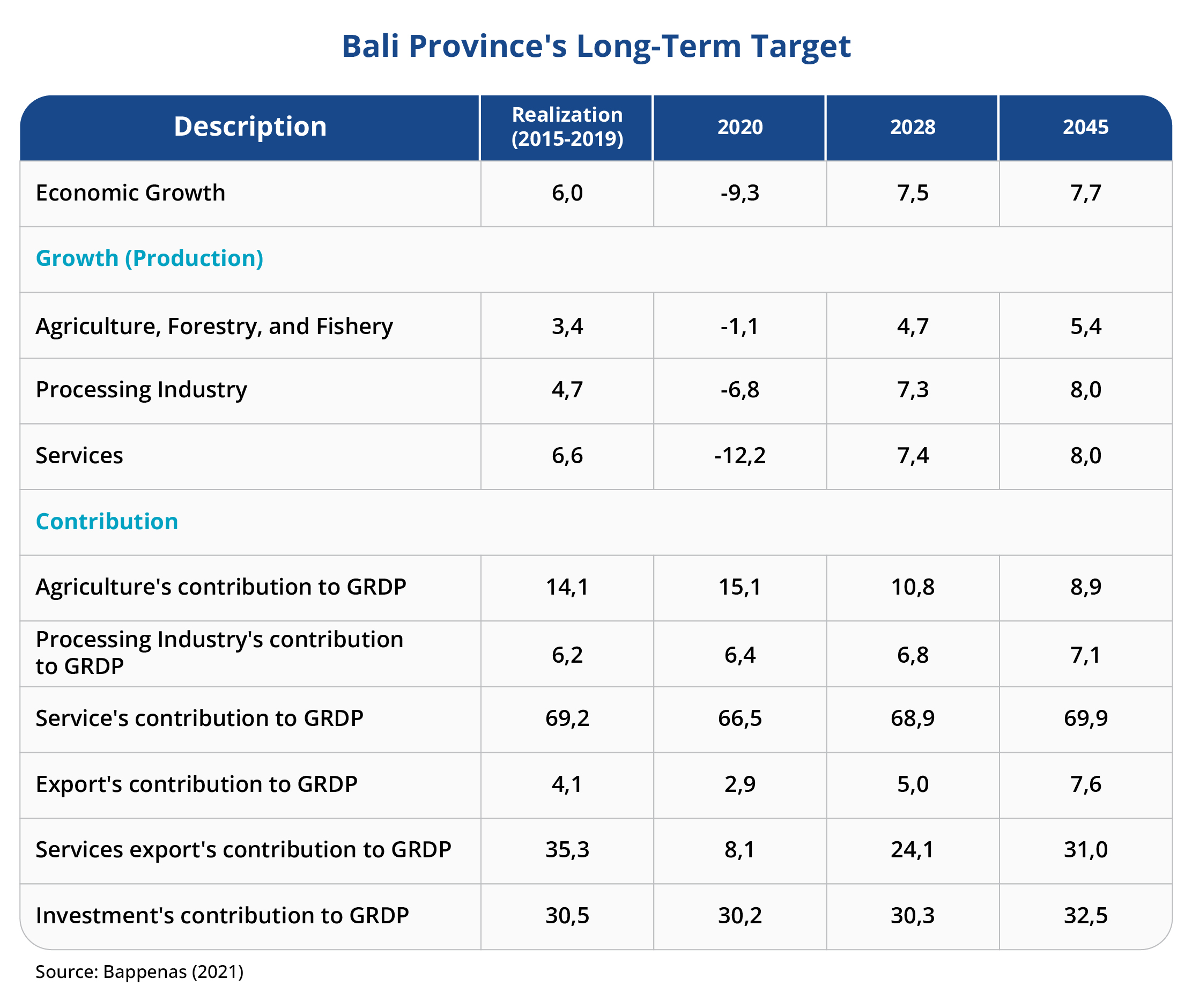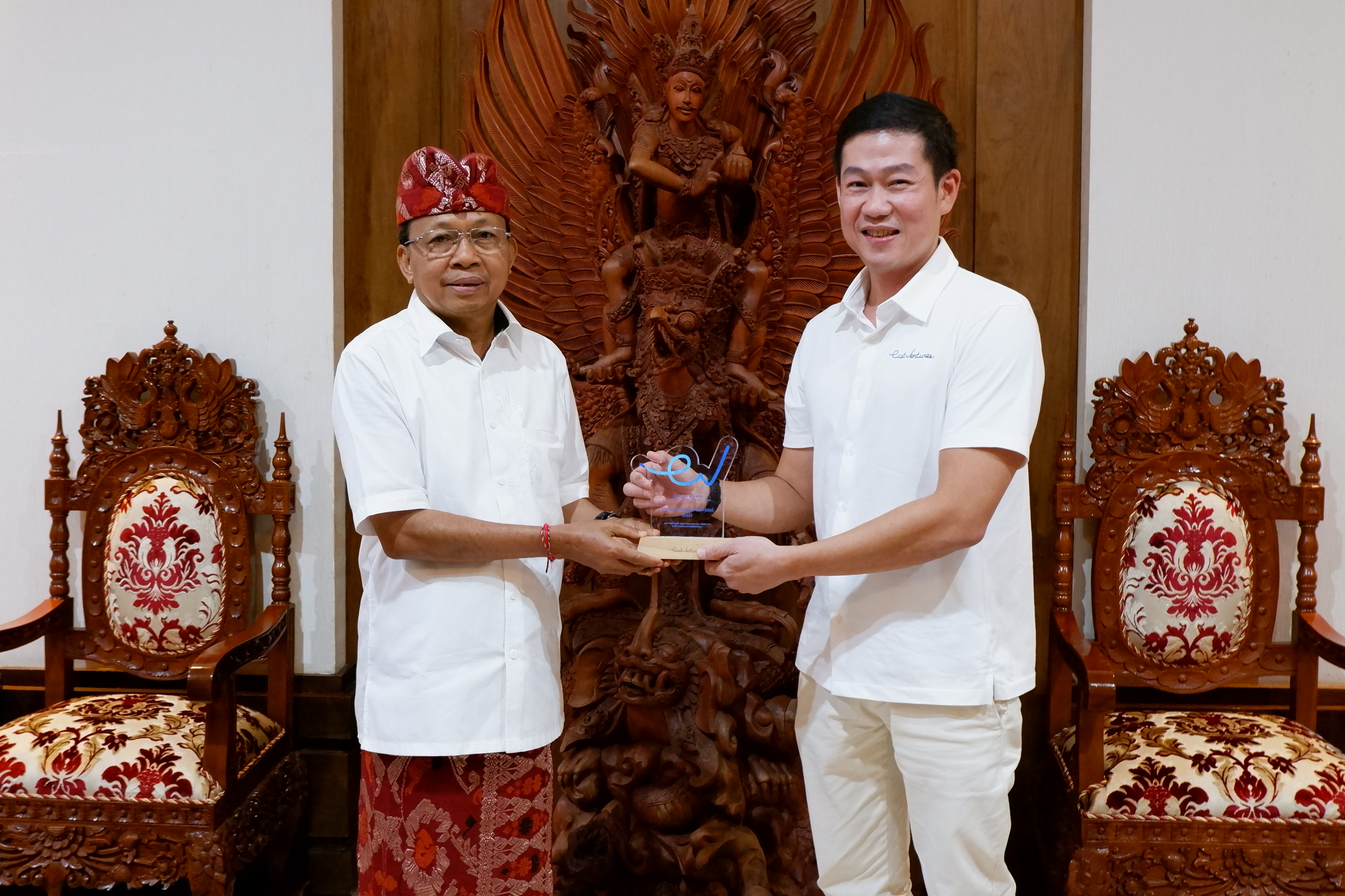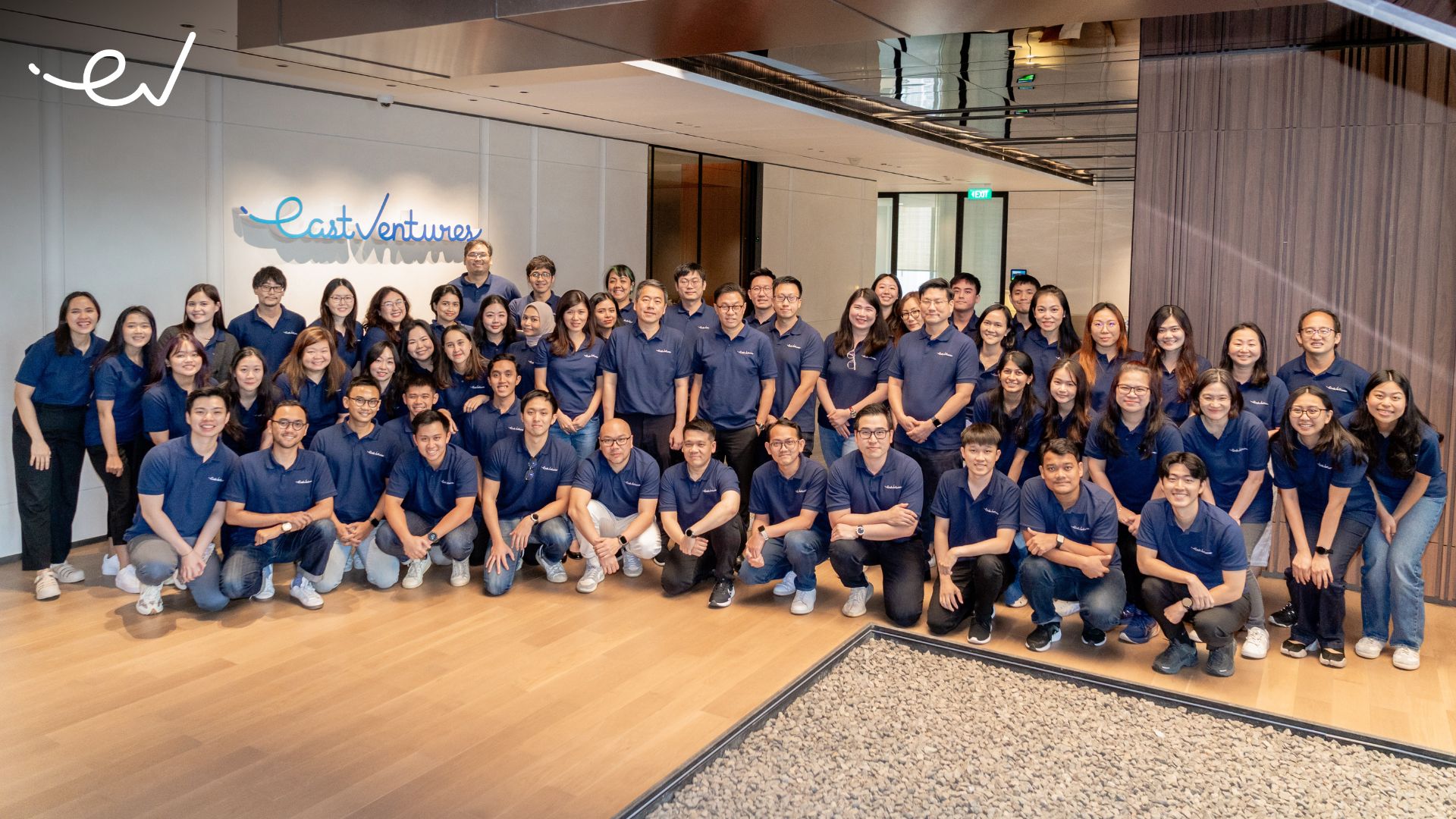Bali consistently ranked in the top 10 of East Ventures – Digital Competitiveness Index, paving its way to becoming the digital hub
Famously named the “Island of Paradise,” Bali has relied on tourism to back its economy for decades. The travel and tourism sector has become the source of most Balinese people’s livelihood. Therefore, the pandemic has brought extreme struggles for the province with a 4.3 million total population that relied heavily on the tourism economy. However, there is a silver lining where the pandemic has also accelerated technology adoption as people, and economic activities in Bali were forced to survive. As a result, Bali has been amongst the top performing regions regarding digital competitiveness, with an EV-DCI 2022 score of 44.9, ranked 6th among the Top 10 Provinces.
Going forward, the Bali regional Government realized that the Island economy should not only depend on one sector, but Bali must diversify and strengthen the multi-sector. Digitalization is the new engine for Bali to generate all existing economic strength and create new ones.
Bali Governor I Wayan Koster explained that digital technology would play a key role in accelerating and upscaling the value added and interlinked among other sectors. “Tourism sector was very vulnerable as the pandemic was beyond our control. Other external factors can also harm the travel sector, such as the eruption, terrorism threats, or travel policy from other countries. To diversify and increase Bali’s resilience in tourism and multiple other economic sectors, we place digital technology as an enabler, providing new solutions and a driver to bring new directions for Bali’s development,” Koster said.
As the economic backbone for the Balinese people, the tourism industry had contributed 61% to Bali’s GDP before the pandemic. During the pre-COVID period, Bali’s economic growth reached 5.3%, higher than national economic growth, driven by the economic activities in the tourism industry. However, Bali was hit the most, with a 9.31% economic contraction in 2020, due to a drastically declining number of tourists.
In the East Ventures – Digital Competitiveness Index (EV-DCI) 2022, which maps the digital competitiveness in 34 provinces, and cities/regencies in Indonesia, Bali is ranked sixth after Banten and East Java. The measurement is based on elements of digital infrastructure readiness, human resources, digital economic activities, and provincial government policies.
Bali’s digital pillars increase
Although the tourism industry had yet to recover towards its pre-pandemic level, the EV-DCI report found that some pillars showed improvements, mainly driven by some initiations from the government and other stakeholders.

For instance, EV-DCI 2022 highlighted the Entrepreneurship and Productivity pillar had jumped significantly from 39.4 points in 2021 to 54.3 points in 2022. It is in line with the onboarding of MSMEs to sell online through digital channels, including the marketplace platforms such as Tokopedia, Gojek, and Grab. Digital also offers creative workers more opportunities through non-fungible tokens (NFTs) and online selling arts.
Another improvement is the Infrastructure pillar. This pillar, which covers telco and electricity indicators, is the second highest score nationally, which increased by 3.2 points to 85.6. It is aligned with the government’s efforts to distribute internet access equally throughout the province. Approximately 1,834 points for Free Wifi access cover 1,370 traditional villages, 107 health centers, 204 tourism objects, and 153 high schools. The administration also constructed a technology park and digital tower called Taman Teknologi Turyapada Tower Komunikasi Bali Smart (KBS) 6.0 Kerti Bali to distribute digital TV and internet signals in Bali, particularly for areas that still have blank spots.
Nevertheless, the EV-DCI 2022 figured a decrease on some pillars from the previous year. The biggest change was found in the Input sub-index, which decreased by -8.6 compared to the previous year, where all input pillars (Human Resource, ICT Usage, and ICT Expenditure) decreased.
Some pillars in the Output sub-index and the Supporting sub-index also decreased, such as the Economy, Finance, and Regulatory & Capacity of the Regional Government pillar. One of the contributing factors to the decrease is the ICT Usage pillar. During the pandemic, the percentage of workers using the internet for work has dropped dramatically. The adoption of Work from home (WFH) and the decrease in Bali’s tourism sector as a main source of income have resulted in a decline in these pillars.
Unfold other potential sectors
The deflation of those pillars could be mitigated and enhanced by unfolding other potential sectors that will contribute to Bali’s economy besides tourism. There are six sectors that the province is focusing on to balance the structure and fundamentals of the Bali economy, namely:
- The agribusiness sector, including farming and plantation.
- Fishery & marine sector.
- The industrial sector, including manufacturing and Bali-branding cultural based industry.
- The Micro, Small Medium Enterprise (MSME) and Cooperatives sector.
- Creative economy & digital industry.
- The quality tourism sector.
Through all these sectors, Koster revealed that the government had developed some electronic-based systems, like web systems or applications, which aim to ease the administration, data integration, provide information, or even virtual exhibition. Later, digital technology is expected to integrate and link each sector so that all sectors can bring more added value to the economy.
Promoting quality tourism also becomes the key to transforming its economy, besides the economic diversification and strengthening of inter-sector linkages. As described in the 2021 National Development Planning Agency (Bappenas) report, the agricultural industry is estimated to grow by 5.4% through modernization/digitalization, development of organic agriculture, and strengthening linkages between the farm and downstream sectors. The connection will create high added value, increasing the manufacturing sector’s contribution by 7.1%. The agricultural and manufacturing industry is expected to support the performance of the service sector, especially tourism. Additionally, the government will direct it into quality tourism, such as cultural tourism, traditional tourism, eco-tourism, education tourism, health tourism (medical, healing, wellness), and digital tourism.

As an early believer in Indonesia’s digital ecosystem since 2009, East Ventures also takes part in unlocking the potential of these focusing sectors. For instance, East Ventures has become the Venture Capital (VC) Partner of Indonesia’s G20 Digital Innovation Network 2022, held in Bali in early September 2022. The G20 initiative could elevate Bali as the hub of digital activities, promoting it as digital tourism.
Health tourism is also another potential vertical sector for Bali to tap into. According to the Minister of Health, Budi Gunadi Sadikin, Bali could be a potential location of center for developing genomic research data. It is essential to create health innovations to grow a healthier generation in the future. There are some efforts to process genomic data. For example, building a genomics research center at Udayana University, with investors’ support, including East Ventures, in realizing the bioresearch in Bali, after supporting the launch of the Biomedical & Genome Science Initiative (BGSi) on August 14, 2022. East Ventures has shown its commitment to supporting biotech and genome research since the early phase by investing in two biotech startups, Nusantics and Nalagenetics.

“According to our research data in East Ventures – Digital Competitiveness Index (EV-DCI), Bali has consistently positioned itself in the top ten ranks in the digital competitiveness index from 2020 to 2022. We have seen many digital improvements in Bali’s regional economic sectors as testaments to Bali’s increasing Digital Competitiveness. We believe that Bali will further accelerate its digitization in order to strengthen and diversify its economy. East Ventures will continue to support Bali to advance its tourism, digital ecosystem, and other sectors,” David Fernando Audy, Operating Partner at East Ventures, said.
To get more insights about EV-DCI 2022, you can download here.
Recommended Media






